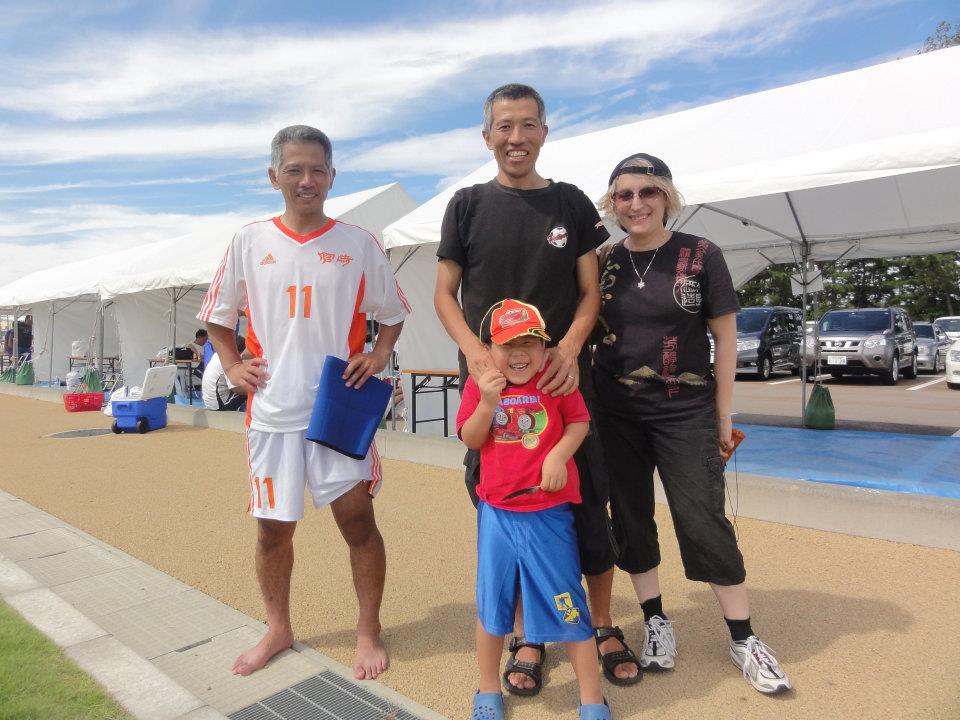One Canadian Woman’s Journey To Adopting In Japan
Part I: Deciding to Adopt
Adoption is not an easy process no matter where you reside. But in Japan — where it still carries somewhat of a social stigma — it takes more than mere determination. In this three-part series, we share one Canadian woman's journey to creating a family here in Japan through adoption.

To be honest, I had never really wanted children.
Even as a small child, I remember playing “house” with my friends and being bored to death caring for dolls and pretending to cook and clean. Although I was interested in the interactions with boys as husbands, that was the extent of it for me. In addition, I wasn’t sure what good parenting was because both my parents worked and my sister and I were raised first by a series of live-in housekeepers, some of whom were not very child-friendly. Eventually, we ended up at the house of an unhappy neighbour. Every day after school, my sister and I would sit at the front window in her house watching anxiously for the sight of our parents’ car pulling into the driveway so that we could go home.
I was also bullied mercilessly when I was in elementary school. At the age of 12, I decided that no one was there for me and I’d have to be on the lookout for myself my entire life. (I also learned that if one can’t get by on looks, one had better develop other talents.)
My husband, however, grew up happily in the countryside in southern Japan and has said that he, unlike me, would happily return to his childhood days.
He had always wanted children. Years ago, when he was my student in an adult night school, he wrote “my son” on the information sheet where I’d asked students to tell me their goal for the future. He’s a total kid magnet, and given the choice he would rather spend time playing with children than chatting with adults. Whenever we’d visit our friends in Canada who had kids, he’d be in another room playing with them while I’d be sipping wine and chatting with the parents. In short, I enjoy being an adult, surrounded by adults. My husband enjoys being surrounded by children.
Then, something happened that made me realize something was missing from my life and that I wanted and needed to care for someone besides myself: In 2006, my new colleague and friend admitted that he suffered from bipolar disorder. Suddenly, I felt a strong desire to “care” for him and found myself helping with his classes, championing his sometimes odd behavior to others and offering to present with him (which meant that I ended up doing most of the work). In other words, I was acting more like his parent than colleague.
I suddenly realized that at 42 years of age, I felt I was ready to start a family.
Childbirth was not in the cards for us. Not only was I probably too old to give birth, there were several medical issues that affected our potential to have our own kids. I had been in a car accident when I was in high school which resulted in a crushed pelvis. In addition, when I was 27 I had to have surgery for an ectopic pregnancy (I didn’t even know I was pregnant until I went to the hospital in severe pain). I remember, post-surgery, the doctor saying that my fallopian tubes were badly scarred and would have to be inflated if I wanted to try to get pregnant without problems. I’d also have to go with IVF, because timing would be tricky. Another doctor told me that our chances with IVF would be slim at best and would only lead to pain, expense, and likely, failure.
And so, we felt adoption would be the best way to increase our family. Later, after doing some reading, I realized that we had been putting ourselves and our needs to parent first. For potential adoptive parents, I would ask you to seriously ask yourselves why you want to adopt.
Adopted children of any age have particular needs and you will, in most — if not all — cases have to put your child’s needs before your own. If you have been in a child-free partnership for a long time, this will be a challenge for you. You will lose a lot of freedom, you will need to read a lot to inform yourself and your relationship dynamic with your partner will certainly change. Especially in a mixed-race couple, where expectations for roles, schooling, etc., will differ, you had better be prepared to communicate your expectations openly and clearly.
In Part II of “Adopting in Japan,” we’ll talk matter-of-factly about the procedures Melodie and her husband went through to meet their son — from being matched, to their first visit together and through the heart wrenching bonding process. We’ll also provide information on the time it takes, costs, alternatives to consider as well as some practical tips and advice. If you have any questions about adoption in Japan for Melodie Cook, please contact us at editorial@gplusmedia.com and we’ll answer them in the final part of the series.











